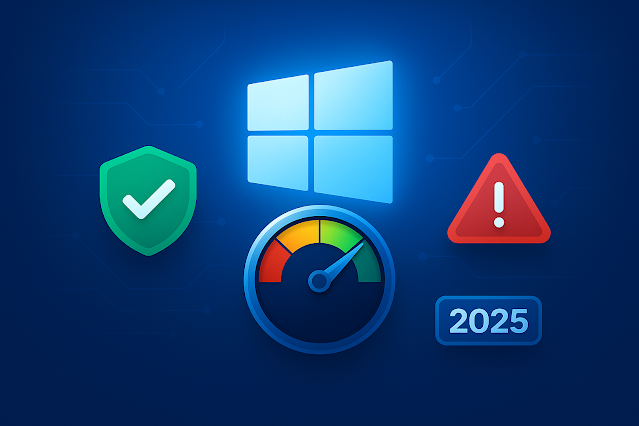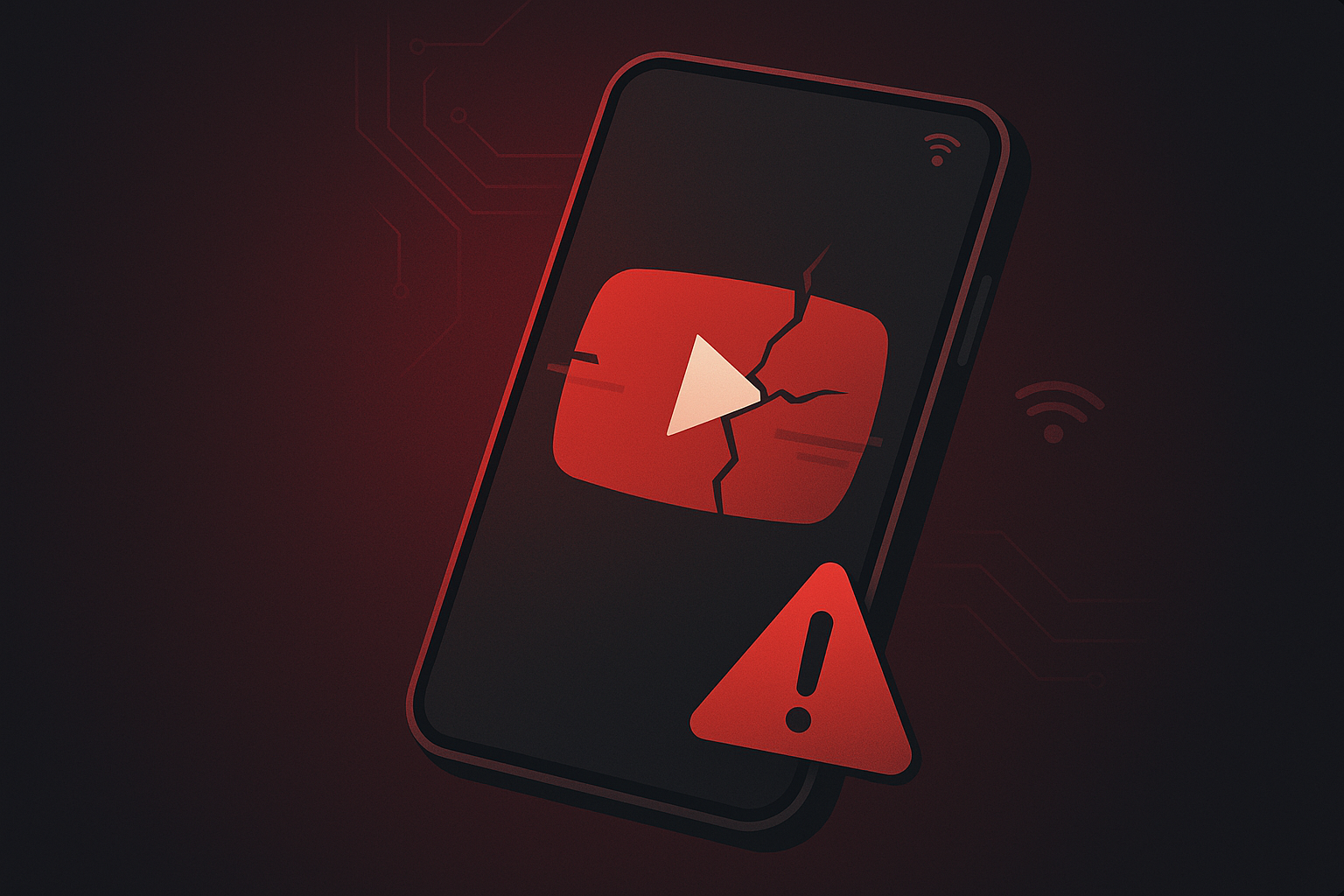· review · 6 min read
Is Windows 11 Good? Our 2025 Verdict (Pros, Cons, and Who Should Upgrade)
Windows 11 has matured with the 24H2 update and Copilot+ PCs, but strict hardware requirements and nagging promos remain. Here’s the no-fluff verdict for gamers, creators, and everyday users.

TL;DR (2025 Verdict)
Yes—Windows 11 is a good choice in 2025 for most people on supported hardware. It’s stable, faster to set up and manage than it was at launch, and the 24H2 release plus Copilot+ features add meaningful quality-of-life improvements (especially on new Snapdragon X and upcoming Intel/AMD AI laptops). If your PC meets requirements (TPM 2.0, modern CPU), upgrading from Windows 10 is free and recommended before Windows 10 support ends October 14, 2025. Caveats: strict hardware gates, some Start/File Explorer promos, and AI features like Recall are still evolving. ([Microsoft Learn][1], [Support Microsoft][2], [Microsoft][3])
Table of Contents
- What’s new (and what changed)
- Pros & Cons
- Performance & Battery (x86 vs. Arm)
- Gaming on Windows 11
- Requirements & Compatibility
- Privacy, Promos & Defaults
- Pricing & Upgrade Paths
- Should you upgrade? Scenarios
- FAQs
- Sources
What’s new (and what changed)
- Windows 11 24H2 (2024 Update) is broadly available, bringing platform refinements and a steady cadence of feature drops via Windows Update and the Microsoft Store. ([Microsoft Learn][1])
- Copilot+ PCs (a hardware class with >40 TOPS NPUs) unlock on-device AI features with better battery life on supported laptops today—rolling out more capabilities over time. ([The Official Microsoft Blog][4], [Microsoft Learn][5])
- Recall (the “find anything you’ve seen” feature) has been redesigned with additional privacy controls, and Microsoft documents its security model; availability is limited to Copilot+ PCs and has evolved since the initial preview. ([Windows Blog][6], [The Verge][7], [Microsoft Learn][8])
- In market share, Windows 11 sits around ~49% of desktop Windows versions worldwide as of August 2025—nearly neck-and-neck with Windows 10. ([StatCounter Global Stats][9])
Pros & Cons
Pros
- Free upgrade from Windows 10 on eligible devices. ([Support Microsoft][2])
- Modern UI & windowing (Snap layouts, multiple desktops) and ongoing feature drops via 24H2. ([Microsoft Learn][10])
- AI/efficiency gains on Copilot+ PCs (local NPU, longer battery life in many models). ([The Official Microsoft Blog][4], [Tom’s Hardware][11])
- Gaming features like Auto HDR and DirectStorage (with compatible hardware). ([Microsoft][12], [Tom’s Hardware][13])
- Security baseline elevated (TPM 2.0, Secure Boot). ([Microsoft Learn][14])
Cons
- Strict hardware requirements block many older PCs (TPM 2.0, CPU lists). ([Microsoft][15], [Microsoft Learn][14])
- Promotional content (e.g., Start recommendations / occasional ads) still surfaces, though some controls improve in the EU. ([The Verge][16], [TechRadar][17])
- AI features (e.g., Recall) are still maturing with privacy changes and phased rollouts. ([Windows Blog][6], [Microsoft Learn][8])
- Windows 10 apps usually work, but niche drivers or legacy utilities may need updates—especially on Arm laptops (emulation via Prism). ([Microsoft Learn][10])
Performance & Battery (x86 vs. Arm)
- Arm (Snapdragon X) Copilot+ laptops often deliver 14–16 hours of real-world battery life in reviews, sometimes 2–4 hours more than strong Intel/AMD rivals, though results vary by model and workload. ([The Verge][18], [Tom’s Hardware][11])
- Windows 11’s Prism translation substantially improved Windows-on-Arm app compatibility/perf versus older generations (still best with native apps). ([Laptop Mag][19])
Takeaway: If you value battery life + silent thermals, consider Copilot+ PCs; for broadest app compatibility and high-end GPU options, Intel/AMD remain safe bets.
Gaming on Windows 11
- Auto HDR can enhance many DX11/DX12 titles on HDR displays. DirectStorage reduces load times with NVMe SSD + supported GPUs. Overall FPS vs. Windows 10 is typically similar, with wins tied to specific features and drivers. ([Support Microsoft][20], [Lifewire][21])
Tip: Gamers on Windows 10 won’t see a huge FPS leap just by upgrading, but Windows 11 positions you for DirectStorage, Auto HDR, and ongoing driver optimizations.
Requirements & Compatibility
Minimum requirements to install/upgrade include:
- 64-bit CPU with 2+ cores, 4GB RAM, 64GB storage, UEFI + Secure Boot, and TPM 2.0. Use PC Health Check to confirm. ([Microsoft][15], [Microsoft Learn][14])
- If TPM is available but disabled, many motherboards let you enable TPM 2.0 in firmware. ([Support Microsoft][22])
Windows 10 end of support is October 14, 2025. Paid ESU (Extended Security Updates) is offered after that date for those who can’t move yet. ([Microsoft][3], [Microsoft Learn][23])
Privacy, Promos & Defaults
- Microsoft has historically tested promotions in Start/File Explorer; you can limit many of these via Settings. In the EEA, default-app and Edge prompts are further relaxed due to DMA compliance. ([The Verge][16])
Pricing & Upgrade Paths
- Upgrade from Windows 10 → Windows 11: Free on eligible PCs. ([Support Microsoft][2])
- New license Windows 11 Pro (Retail): typically $199.99 via Microsoft Store. Windows 11 Home commonly lists around $139 at major retailers. ([Microsoft][24], [Best Buy][25])
Should you upgrade? Scenarios
- Everyday users on supported PCs → Upgrade now. You’ll get current security, features, and a smoother path past Windows 10’s end-of-support. ([Microsoft][3])
- Gamers/creators on powerful rigs → Upgrade when convenient. Expect similar FPS but quicker loads (with DirectStorage) and ongoing driver work. ([Lifewire][21])
- Older/unsupported PCs → Consider staying on Windows 10 with ESU temporarily or plan a new PC; bypassing requirements isn’t recommended. ([Microsoft Learn][23])
- Road warriors → Copilot+ laptops are compelling for battery life and on-device AI—verify your app stack first (native vs. emulated). ([The Official Microsoft Blog][4], [The Verge][18])
- Privacy-sensitive environments → Review Recall/Copilot controls or disable features as needed; track Microsoft’s security updates. ([Windows Blog][6])
FAQs
Is Windows 11 free if I have Windows 10? Yes, if your device meets the requirements, the upgrade is free. ([Support Microsoft][2])
When does Windows 10 support end? October 14, 2025. ESU subscriptions can extend security updates for a fee. ([Microsoft][3], [Microsoft Learn][23])
Do I need TPM 2.0? Yes—TPM 2.0 and Secure Boot are part of the baseline requirements. Some PCs just need TPM enabled in BIOS/UEFI. ([Microsoft Learn][14], [Support Microsoft][22])
Are AI features like Recall safe to use? Microsoft has detailed security/privacy changes and added controls; availability is limited and evolving. Evaluate policies before enabling. ([Windows Blog][6], [Microsoft Learn][8])
Is Windows 11 better for gaming? Features like Auto HDR/DirectStorage help; raw FPS is generally similar to Windows 10, depending on drivers and titles. ([Lifewire][21])
Sources
- Windows 11 24H2 status & rollout — Microsoft Docs. ([Microsoft Learn][1])
- What’s new in 24H2 (IT/feature view) — Microsoft Docs. ([Microsoft Learn][10])
- Copilot+ PCs overview (40+ TOPS NPUs) — Microsoft Official Blog & Docs. ([The Official Microsoft Blog][4], [Microsoft Learn][5])
- Recall security & availability updates — Windows Blog + Docs; Verge overview of changes. ([Windows Blog][6], [Microsoft Learn][8], [The Verge][7])
- Market share (Aug 2025) — StatCounter. ([StatCounter Global Stats][9])
- Windows 11 specs & TPM 2.0 — Microsoft (specs + TPM enable). ([Microsoft][15], [Microsoft Learn][14], [Support Microsoft][22])
- Windows 10 end of support & ESU — Microsoft Support & Docs. ([Microsoft][3], [Microsoft Learn][23])
- Free upgrade from Windows 10 — Microsoft Support. ([Support Microsoft][2])
- Gaming features — Auto HDR / Windows 11 gaming; DirectStorage coverage. ([Microsoft][12], [Lifewire][21])
- Battery life & Arm trend — The Verge review roundup; Tom’s Hardware battery testing. ([The Verge][18], [Tom’s Hardware][11])
- Start/Explorer promos & EU DMA changes — The Verge; TechRadar; The Verge (DMA). ([The Verge][16], [TechRadar][17])
- Pricing — Microsoft Store (Pro) and retailer listing (Home). ([Microsoft][24], [Best Buy][25])


